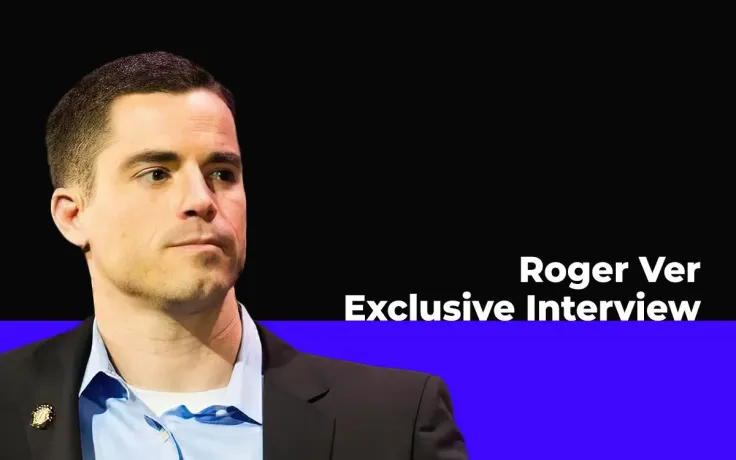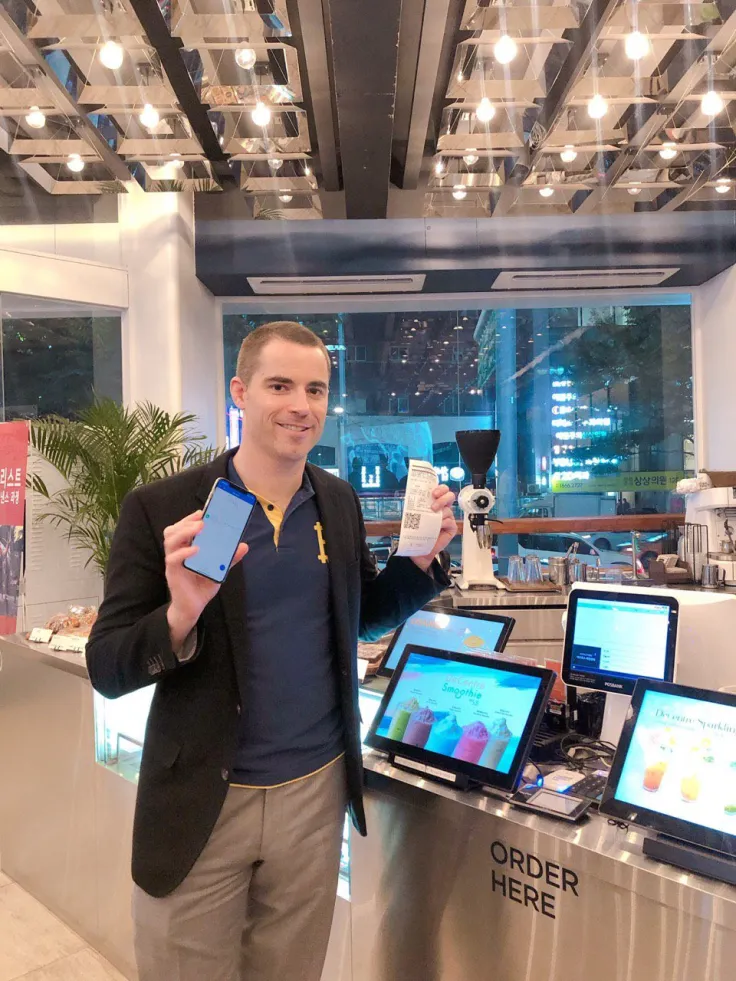
Roger Ver is a famous Bitcoin-veteran, prominent entrepreneur and, probably, one of the most aware people in all of the cryptocurrency space, hence he has often been called “Bitcoin Jesus”. Roger shared with me some of his earliest memories of the beginning of Bitcoin’s history and explained why he changed his mind on BTC cryptocurrency.
Since he’s widely known as an experienced investor, I also asked him to share some advice on the best way to make investments. Let’s dive in and find out what he thinks about the industry these days and the one thing he would change about the industry if he could.
U.Today: As one of the first investors in Bitcoin and one of the earliest adopters, you must have some interesting stories about the early industry. Can you share with us a meaningful memory from that period of Bitcoin’s existence?
Roger Ver: For me, the really fun turning point that I remember in this space was, everybody used to always say, “yeah, Bitcoin, well, what can you buy with it?” And there wasn't really a good answer. You could buy some alpaca socks and maybe you could buy some drugs from the dark net. But in 2012 I launched a website called bitcoinstore.com that had more than half a million consumer electronics products listed at prices for the most part cheaper than Amazon.

Image by twitter.com/rogerkver
We only accepted Bitcoin and we sold millions of dollars worth of products to people all over the world. And that was a real big turning point in Bitcoin. So from that point on, whenever anybody asked, “Hey, what can you buy with Bitcoin?” You could tell them, “Hey, more than half a million consumer electronic products, at prices usually cheaper than Amazon.” So that was a real big turning point that inspired the other businesses later, like Newegg, and TigerDirect, and Dell Computer, and Microsoft to have to start accepting Bitcoin at their businesses as well.
U.Today: According to your previous interviews, you lost faith in Bitcoin (BTC) in 2017 because of the slow transaction speed and high fees and switched to Bitcoin Cash saying that it's the best version of Bitcoin. Do you still think so? What are your thoughts on BSV?
Roger Ver: At the end of 2017, the average fee on the BTC network got to be $50 and the average confirmation time got to be nearly two weeks. Right? So that meant you had to pay $50, on average, and wait for two weeks on average for your transaction to go through on the BTC blockchain. That's certainly not the money of the future. That's an embarrassment to anybody trying to promote it. So, of course, I could no longer promote Bitcoin when it became that unreliable. And you have to point out that it became that unreliable by the intentional design of the Bitcoin core developers, people like Adam Back and Greg Maxwell and a bunch of people that got hoodwinked into thinking that full blocks and the high fees and unreliable transactions that they cause or are a good thing. I still think that with BTC, you're just waiting for another fee incident and another problem to happen like that again. If Bitcoin ever becomes popular enough again, it's going to have the exact same problem.
In fact, over the last couple of days, we saw a similar problem. On a minor scale, just yesterday, the average fees on the BTC network, again, were over $3, and there's a forty-something megabyte backlog of transactions waiting to be included in the next block. That means that the average wait time to be included in a block is somewhere in the ballpark of about six hours. So that's not acceptable. People are going to use something else.
So, your final question, what do you think about BSV? I think it's just fine. I think that there are several thousand cryptocurrencies out there and people can use the ones that are the most useful to them. BSV isn't listed on hardly any exchanges and has hardly any merchant adoption. So I'm not super bullish on that front, but they're doing some other things that I do think are interesting.

Image by twitter.com/rogerkver
The thing that just left a horribly bad taste in my mouth is the fact that they're busy suing everybody about everything. So they're suing myself and Vitalik and podcasters and other heads of exchanges. I'm not going to use them because of that. So, that's the real big turn off. And they're threatening to sue everybody else in the world with their patents. I'm opposed to patents. I think it's a legitimate government-granted monopoly.
So, I'm not a fan of supporting systems that are threatening to sue everybody over patent stuff. So, that's what I think about BSV.
U.Today: I recently spoke with Charles Hoskinson, and he said that it’s actually not too hard to find out who Satoshi Nakamoto is using Code Stylometry (the analysis of actual source code), but he’s not interested in doing it. What about you? Have you ever tried to find out who this person is? Do you have any guesses as to who it might be?
Roger Ver: I don't know. Whoever Satoshi is, if he wants his privacy, he deserves it and I'm not gonna pester him. So, if Charles Hoskinson thinks that it's easy to do, he can do it, I suppose. But, extraordinary claims require extraordinary evidence. So I'm not really convinced by his claim there.
U.Today: Who, in the crypto space, do you respect the most? I saw in one of your interviews that you had pretty warm feedback for Vitalik. Is there anyone else you consider to have a bright mind? What about other projects in the space - which ones are the most interesting for you?
Roger Ver: So, of course, CZ has been an amazing entrepreneur in the space. Really just kudos to CZ for doing such an amazing job. I think people are really underestimating Binance coin BNB. Their whole slogan is like "BNB, pay with BNB." That was the entire point of Bitcoin. That's how Bitcoin started to get traction in the first place. People were using it to pay for things.
Now people that are promoting Bitcoin mock people that want to pay with Bitcoin, but BNB is taking the right path, telling people to pay with BNB. So, I think buying some BNB would be a smart bet.
What other projects are interesting in the space? Of course, BNB because they're trying to get people to use it as money. I really like that and am a fan of that. Ethereum's amazing. And DeFi should not be underestimated.
People know I'm already a fan of Bitcoin Cash. Other ones - I'm a fan of all the privacy coins. I think fungibility makes money, money. If it's not fungible, it's not good money. So I'm a fan of the privacy coins. I think people don't fully realize it yet - Bitcoin cash is right on the verge of being one of the strongest privacy coins in the entire cryptocurrency ecosystem period. It'll have some of the strongest privacy and it'll have the most merchant adoption of any privacy coin. So that's a really, really big deal. And one of the additional reasons I'm so bullish on Bitcoin cash is cash fusion.
U.Today: Can you give our readers who want to make successful investments any advice on how to do so?
Roger Ver: Sure. So you don't invest your money where the capital already is today. You invest your money today where the capital's going to be tomorrow. And so, within the cryptocurrency space, BTC has the most capital invested in it. But remember, with Bitcoin, there can be multiple-week-long waits for your transaction to go through and unreliable fees, which can be $3 or $30 or $50. You don't know. I've paid more than a thousand dollars in Bitcoin fees for a single transaction more times than I can count. And a lot of people didn't believe that or said I was a liar, but it's right there on the blockchain. Anybody can check. You can go to blockshare.com, I think it is. And you can search the blockchain and sort it by transactions that paid more than a thousand dollars in fees.
There are more than 28,000 transactions in which people paid more than a thousand dollars in fees to use the BTC network.
So that's 28,000 times people used the BTC network and said, “why would I ever want to use this again where I had to pay $1,000 in fees? I'm going to use Ethereum, I'm going to use Bitcoin Cash, I'm going to use BNB, I'm going to use anything but this stupid BTC coin that has slow, expensive, unreliable transactions.” So it's just amazing to me how many people still don't see that yet. But the people that don't see that yet are the ones that never actually tried using Bitcoin for payments or they would know firsthand. Anybody that was trying to use it for payments, saw it firsthand and they know. That's why the CEO of Coinbase, the CEO of blockchain, the CEO of any exchange, knows that BTC was an absolute disaster when the blocks became full. So, my investment advice: invest your currency or your money now where the capital is going to flow to in the future, not where the capital is today.
U.Today: Do you think it’s possible for people to truly get rid of government regulation and take control of their own finances? If so, how much time will it take to get to that point?
Roger Ver: I don't know if we'll ever be able to get rid of government completely, but that doesn't mean it's not a worthy goal, right? Like, are we going to manage to live in a world someday in which there's never ever a rape? I hope so, but that's going to be hard, right? There's always rapists out there and maybe the government people will manage to continue using violence to control peaceful people. But that doesn't mean that we shouldn't try to minimize the amount of violence that governments are allowed to impose. Just like we should try and minimize the number of times people rape people.
U.Today: There are lots of projects like, for example, “How I went a whole day spending only crypto” which means that it’s still something that’s hard to put into practice. How often do you use cryptocurrencies in your everyday life?
Roger Ver: Every day I pay for things in cryptocurrency more often than I pay for things with credit cards or fiat currency. I do almost all of my shopping on purse.io on Amazon and whenever I have to pay anybody in the world, I'm paying them with Bitcoin Cash. It's just so fast, cheap and reliable and I'm looking forward to getting even more people around the world using that. So, I use it all the time. And that's why I saw, maybe so much more clearly than other people, why BTC was a disaster. Because I was trying to use it for payments and it just plain stopped working for payments.

Image by twitter.com/rogerkver
I remember specifically, I paid around $20,000 in Bitcoin for, I forget what I was paying for, maybe some advertising fee or something, and the transaction didn't go through. And like six hours later I checked and my transaction wound up getting dropped from the mempool because the fees had spiked. My transaction didn't have high enough fees for the network there. And then people say, “Oh, you need to calculate the fee or set the fee manually or this and that.” I'm a professional, I've been using Bitcoin for 10 years and I understand how the fee market works and understand everything else. Everybody's busy in life and if I paid the wrong fee with a wallet that's supposed to calculate it automatically, or the fee market changed afterward, that's a horrible, horrible user experience.
So if I, myself, as a professional in the ecosystem, have a bad time, imagine how hard it's going to be for some normal person that has no idea what full blocks are or what a fee is or what one satoshi per byte even means. It's gonna be an absolute disaster for those people.
U.Today: I understand that you’re a person who joined the space for the idea, not for speculation. And, you’ve been in crypto longer than most, so given your experience, your vision on how everything will develop is very interesting for our readers. Do you think the Bitcoin (BTC, BCH, BSV) price will continue rising? Will we ever see something similar to 2017’s boom again?
Roger Ver: Yeah, that's a good question. There's always the ups and downs, but in the long term, whatever cryptocurrency is the most useful is the one that's going to be used by the biggest number of people. So, BTC has the biggest network effect and, because of that, the biggest brand recognition and trust. But BCH has the best user experience and still a pretty darn big network effect. And BSV - there are people out there that like it - it has an even smaller network effect.
So, I guess the question in my mind is, which is going to win out in the long term? The good user experience or the brand that everybody knows? And I think we saw the answer to that in the long term with Facebook and MySpace, and even Friendster before My Space.
If the user experience becomes bad enough and there's an alternative ready for people, people will make the switch. If BTC continues to have full blocks and the bad experiences that those cause and no alternative on-chain, like lightning networks not being ready - if you're using a custodial solution, you might as well just use PayPal. You don't need a blockchain at all. So if, anyhow, the bad user experience on BTC continues, despite its brand awareness around the world and brand recognition, people are going to switch to something else. I think that Bitcoin Cash has a fantastic shot at being that thing that lots of people switch to.
U.Today: What would you personally change in the community if you could?
Roger Ver: I would get rid of the censorship. People don't realize it. And I also underestimated just how big of a deal that censorship would be.
The censorship is still going on to this very day in places like r/bitcoin and bitcointalk.org and at the time the censorship started the vast majority of the community were big blockers and they knew and understood and appreciated how important it was to use Bitcoin as money and how important the work that I did in the early time was and that I wasn't out to scam anybody. I was out here to try and build the tools to bring more economic freedom to the world. And now all the people that came to cryptocurrency after the censorship started, they only got to hear one side of the story. They don't know the truth and they're prevented from hearing the truth because of the censorship.
It's a Monkey See, Monkey Do scenario. If everybody around you in your entire life told you Santa Claus was real, you would believe it.
If everybody around you in the world told you that Bitcoin Cash is stupid and big blocks are stupid and small blocks are great, you'd believe it if you were never allowed to hear the counter-arguments. And that's what's happened, in large part, to the Bitcoin community due to the censorship. So if I could change one thing, it would be the censorship.


 Vladislav Sopov
Vladislav Sopov Dan Burgin
Dan Burgin